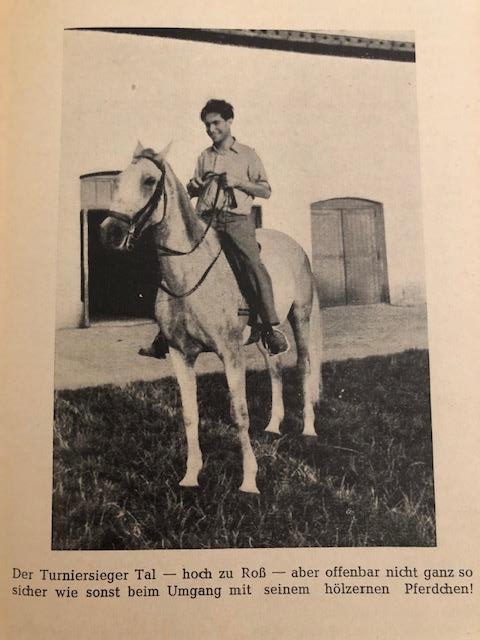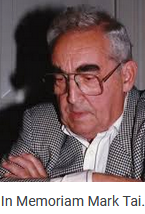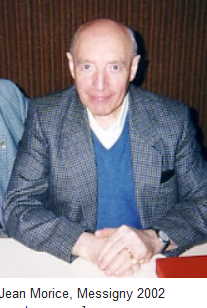The new year saw the same faithful listeners as in 2016 to drink in the words of the Master.
A cable cut by the clerk's rabbit deprived him of part of the conference.
Best wishes to all.
Below is the report and at the bottom of the page, the photo of the Master against Murey.
I am sometimes criticised for not keeping a close eye on recent tournaments. It was planned that, at least as far as the endings were concerned, I would comment on the news on the site corresponding to my 2012 book. Unfortunately, the publisher did not keep his promises, so that was impossible. It is therefore, ipso facto, the so-called "master class" that has the first place, see for example the Jobava-Radjabov (27 January 2015), Howell-Nakamura (24 February 2015) and Caruana-Svidler (4 October 2016) games. Regarding the last "world championship", I will note two rare relevant sentences that I could read on the already mentioned forum-trash:
""Carlsen dominated Karjakin in the final", is that a reference to the three winning endgames he failed to convert, or to the draw endgame he lost?"
"That's all talk. The result is 6-6. That's it. Over a game, I'm willing. But the two class difference... with only one win out of 12 games (!), we're still looking... In any case, it's not on these games that we'll find them, the two classes of difference. And the "if I hadn't played badly, I would have won" line of reasoning is a beginner's one.
And a few remarks gleaned from elsewhere on the internet, about an ex-world champion's unwelcome comment, especially unkind to his compatriot [only basic English is needed, the proof, I understood it all!]
"Kasp's ego is such that he has to present himself as the greatest and often disparages other players in order to build himself up. Of course, he will continue to praise Magnus, for he was his trainer and, thus, Magnus' success can partially connect to Kasparov. During the Gelfand/Anand match, he disparaged both players for no good reason. Obviously, there is also a political motive behind his comments about Karjakin, but, overall, Kasparov has a narcissistic need for attention and he goes about it by disparaging others in order to elevate himself.
"What did Russia do to Kasparov to make him turn?".
"The result of the match was 6-6. How does that make Karjakin unworthy? The only thing to be called unworthy is Kasparov's remark".
And, finishing with a flourish: "Kasparov needs to keep quiet. Just be Rex's lap dog".
Well done, gentlemen!
Finally, in front of the general media amazement (should I say bewilderment?) about this "Qh6+!!", I am forced to give again the game that anticipates it by 37 years. Which is much better: the move in question is the result of a combination of six moves. Its winner has not, to my knowledge, claimed any copyright.


The last course included a study co-authored by Botvinnik. It is therefore only natural to begin with one by Tal, also with two hands. His collaborator was also a genius, but underestimated because he was too prolific. And often, it is true, quantity is detrimental to quality. Then an acrobatic rescue of Czech origin.
In honour of Mark Taïmanov (but what is it with all of them wanting to leave us in recent months?), a miniature against a... super-defender and an endgame against an... excellent endgame player.
Game of the day: it's another pyromaniac of the chessboard who leads the game, against our favourite arsonist. This brilliant and very nice player, well known in our country, has a particularity which brings him closer to Kortchnoi, Jansa and some other sacred monsters: he is able to analyse for hours on end, without feeling the least the needs of ordinary humans, like hunger, thirst and sleep...
Enchantment: we are borrowing from our 'English friends' (some will be startled to read this, but the editors of the Problemist have no responsibility for Mers-el-Kebir) two diagrams from an article by P. Bissicks, R. Turnbull's colleague, who is also a regular contributor to our fairy column. It is not only a question of playing longer and longer moves, but of playing Black when you have White, and vice-versa ("vice", it is the case to say it). We follow with an initiation to Argentine Chess, which reverses the characteristics of Chinese pieces.
Here! The judges do not always wade in the sauerkraut. Here is that a first prize (from the same journal) has just been awarded to the Arestov study given at the already reported course of February 24, 2015, at the time when it was only an obscure original work, drowned in a stream of more or less confused works. Our listeners and readers will once again have been informed in advance. The 3rd prize (Timman) of the same competition was presented on 27 May 2014.

For practice: a couple of 2#s, one of which is a bit tricky, the last one. Then two beautiful 3# of the famous tandem (the first one gave me trouble). A logical 4# with sacrifices. Three helpmates that are not very difficult. Finally a selfmate by a very great composer, with a surprise effect. And, by popular demand, a demonstration of a very typical reflex, i.e. with several... white mats as refutations of tries.
Have a good time. And God bless you.
Add a comment